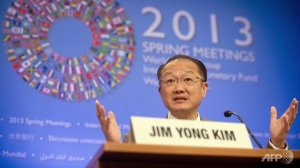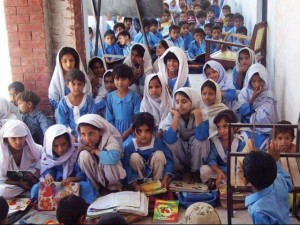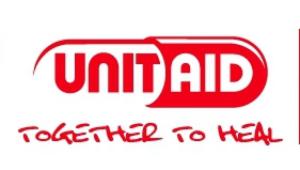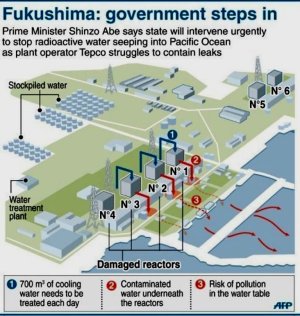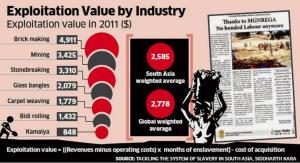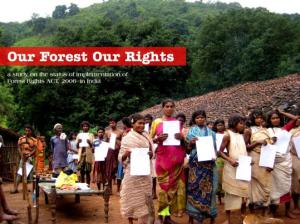President Kim Responds to Civil Society’s Concern on Private Sector Investments
We have years of experience in implementing complex projects. Over the past decades, we have developed this expertise in order to both bring benefits for the poor and help grow economies. This involves a wide range of activities, including planning investments; procuring goods, works and services; protecting and involving indigenous communities; and protecting the environment and the rights of the poor.
We have learned from failure and success. Governments, private corporations, and civil society groups recognize that our experience in complex projects is a core expertise of the World Bank Group. Governments seek to partner with us not only for our financing but also for our technical knowledge and practical experience around the world. Private companies tell us they want to be involved with IFC, our private sector arm, because of our environmental and social risk management capability — and also because our performance standards now constitute a global benchmark. IFC’s strong track record in environmental and social risk management has made it a partner of choice. Because we need to attract much more private sector investment in developing countries, IFC’s role ahead will clearly grow in significance.
An essential aspect of our work in developing countries involves the Inspection Panel and the Office of the Compliance Advisor/Ombudsman (CAO). These independent bodies ensure that our policies are credibly and effectively applied. They open up a channel for people affected by World Bank Group-financed investments and give them an opportunity to be heard.
One good recent example of giving voice to an affected community occurred in Uganda, where a CAO mediation resulted in an agreement between the Mubende community and agribusiness investors. In a country where large-scale agribusiness projects are a means of attracting foreign investment and creating employment, vulnerable communities also may face resettlement and food insecurity. The CAO mediation process created a platform for the community and private sector to come together and reach agreement on sensitive issues.
The CAO and the Inspection Panel enhance our impact and they help us further improve our effectiveness. Since its creation, the CAO has helped IFC develop a risk-based approach and shape its own procedures and policies. I am proud that these independent bodies – the CAO and the Inspection Panel — were the first recourse mechanism of their kind among multilateral institutions. I am committed to ensuring that they continue to play that role.
Today, there is renewed attention to IFC projects in both India and Honduras, and renewed focus on IFC’s financial sector investments. I take very seriously the conclusions from the CAO audit reports. In the two country cases, we will make sure that action plans developed by IFC address the issues identified by the CAO’s reports. In the case of the Honduras project, for which the CAO report is still being reviewed, IFC’s executive vice president will issue a statement and an action plan in response to CAO’s conclusions. On this case and others, IFC’s executive vice president will periodically report to me on the steps taken to ensure that these action plans are effectively implemented. Separately, CAO will also regularly inform me on IFC’s implementation of these action plans.
In the financial sector, which constitutes a growing share of IFC’s portfolio, we face a challenging task of tracking large volumes of transactions. Our policy is that we will ensure our clients have an environment and social management system to assess and manage these risks, including the application of the IFC Performance Standards. More generally, I have emphasized the importance of responding directly to the findings of the World Bank Group’s independent accountability mechanisms.
Over the last several months, I have called for taking on bolder, transformative projects and not to be afraid of taking smart risks if these projects represent a way to help countries lift people out of poverty and boost shared prosperity. I also want our safeguards policies to be even more effective. The on-going World Bank’s safeguard review for investment projects provides us an opportunity to achieve this. But taking smart risks includes managing non-financial risks in order to help us achieve good outcomes for the poor and not compromise the core values of our institution. I believe that the interests of the poor and those of our shareholders are, in fact, aligned and that social progress and environmental protection can be strongly correlated to economic growth and financial profitability. This is why the World Bank’s safeguards policies and IFC’s performance standards will remain a cornerstone of our business.”
Invest in girls’ education to break cycle of poverty: UNICEF
NEW DELHI: Investing in education of girls, especially the most marginalized, is required to make progress on most social indicators in India, according to UNICEF.
To mark the second International Day of the Girl Child, UNICEF on Friday organized a meeting with top Urdu editors in the capital.
Speaking at the event, Urmila Sarkar, chief of education UNICEF, said, “Innovation in girls education will be instrumental to female empowerment and breaking the cycle of poverty and deprivation.”
The focus of the meeting was on the crucial role that media can play to create a sustained discourse and highlight innovations that get more girls to school, keep them in school and improve the quality of learning for all children.
In India, the number of out-of-school children stands at 8.1 million, of which 4.5 million are girls. For every 100 boys enrolled, 88 girls are enrolled in secondary school. The main causes of school dropout among girls are child marriage and child labour, the UNICEF said.
Giving examples of how communities have arranged for safe school transport for girls in hard-to-reach areas from Udaipur, Rajasthan, Sarkar stressed on innovation in girls education and highlighted the importance of gender sensitization.
“Teachers who have undergone gender sensitization training have made a significant difference for adolescent girls in schools,” she said.
The conference was chaired by the vice-chancellor of Maulana Azad National Urdu University Mohammed Miyan and director general, Doordarshan News, S M Khan.
The participants shared examples of how technology coupled with media outreach, has increased access to education for out-of-school girls and improved the quality of learning for every child.
They urged Urdu media to dedicate media space and build capacities of reporters to highlight issues and innovations in education, especially of girls.
Civil society representatives from Shikhar, Prof Rihan Khan Suri and Ambarish Rai of the RTE Forum spoke on how civil society efforts can build on the momentum created by a conducive educational policy framework and ensure that girls have access to quality learning environments.
States, civil society embarking on new partnership, says UN Assembly President
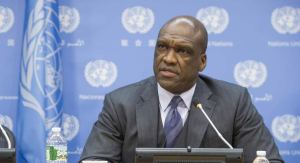 John Ashe, President of the 68th General Assembly, addresses the opening of the General Debate. UN Photo/Rick Bajornas
John Ashe, President of the 68th General Assembly, addresses the opening of the General Debate. UN Photo/Rick Bajornas
UN News Centre- Oct 3, 2013
The General Assembly is embarking on a new partnership between Member States and civil society, the President of the 68th body, John Ashe, today said highlighting the role of non-governmental organizations and other partners in shaping a new global development agenda.
“I believe we are embarking on an openness now,” Mr. Ashe told journalists in New York in his first press conference since the Assembly’s annual General Debate wrapped up on Tuesday. “As we begin to move along, we will begin to see more of this, moving towards a new norm.”
The current dialogues have achieved a “happy medium” between the kind of participation that civil society desire and the type with which Member States are comfortable, he said.
“It’s not possible without civil society,” the Assembly President continued, adding: “Civil society should help to define what we hope to be a universal global development agenda.”
Mr. Ashe had chosen the theme for this year’s General Assembly, “The Post-2015 Development Agenda: Setting the Stage!,” which would begin in the period after the 2015 deadline of the Millennium Development Goals (MDGs).
Calling it “remarkable,” Mr. Ashe noted that despite situations in Syria and the Middle East which featured prominently over the seven days of the Debate, the majority of Member States commended the choice of theme and pledged their support.
“Despite wars, trials and tribulations, and famine, floods, virtually all the Member States that spoke did address the theme in one way or another, welcomed the choice and pledged their support and cooperation to advancing the theme,” he noted.
On the eve of the high-level debate, which opened on 24 September, Mr. Ashe and UN Deputy Secretary-General Jan Eliasson took part in a special event in which regional civil society networks presented their recommendations in Arabic, English, French and Spanish for a post-2015 agenda.
The event – ‘Advancing Regional Recommendations on Post-2015: A Dialogue between Civil Society, Governments and UN Representatives’ – brought together more than 1,100 civil society representatives, along with Member States and UN officials.
UNITAID wooing India to become contributing member
UNITAID, which buys three fourth of its total quantity medicines from India for its global programmes, is wooing India to become a contributing member and enter its board to make a difference for the developing world.
As part of garnering support in this endeavour, UNITAID’s executive director Dr Denis Broun held discussions with the Union Ministers, senior officials from different ministries including Health, Commerce and the Chemicals, apart from meeting other stakeholders in the last couple of days.
Expressing optimism about India joining the global agency, Dr Broun said India was looking for a greater role in UN agencies and should grab this opportunity. “The response by the leadership was positive and I hope, India will be a contributing member and thus become a board member of UNITAID, thus pushing its agenda to have a more active role in the UN bodies,” he told Pharmabiz.
“We have sought around five million dollar contribution from India per year so that India can become a member in the board. Now the board is dominated by the western countries. There will be big difference if India joins the board as India is better aware of the ground situations in the developing world, unlike many other members,” he said.
UNITAID, which is facilitating the availability of life-saving drugs to patients especially in the poorer economies, bought drugs worth $600 million in the last five years from Indian companies. The agency buys medicines from about 16 Indian companies, mainly the top level players.
“India is the leading supplier, accounting for about three fourth of our medicines. This is to grow further in the coming years. We have programmes worth $50 million currently in India. More than this, we play a catalytic role as we bring down the prices of drugs, setting up a benchmark for global associations and agencies. The drug manufacturers are thus forced to supply the drugs to all major global agencies at the reduced prices that we negotiate and fix,” he said.
Dispelling the quality concerns about Indian drugs, he said the agency never came across any issues or incidents regarding quality of drugs from India. “We have a very strict quality policy, though we promote generic drugs,” he added.
During his visit to India, he also interacted with all major pharmaceutical suppliers to address their concerns like delay in payments. “There are of course concerns about the small profit margin. We have to strike a balance between profit of the company and the affordability. UNITAID was also looking towards India as an innovator and wanted to give a push to the efforts,” he added.
UNITAID was established in 2006 by the governments of Brazil, Chile, France, Norway and the United Kingdom as the “International Drug Purchasing Facility.” Today it is backed by an expanding “North-South” membership, including Cyprus, Korea, Luxembourg, Spain and the Bill & Melinda Gates Foundation alongside Cameroon, Congo, Guinea, Madagascar, Mali, Mauritius and Niger. Civil society groups also govern UNITAID, giving a voice to non-governmental organisations and communities living with HIV, malaria and tuberculosis.
UNITAID, hosted by the World Health Organisation and based in Geneva, uses innovative financing to increase funding for greater access to treatments and diagnostics for HIV/AIDS, malaria and tuberculosis in low-income countries. UNITAID is the first global health organisation to use buy-side market leverage to make life-saving health products better and more affordable for developing countries. Approximately half of UNITAID’s finances come from a levy on air tickets.
Courtesy :Joseph Alexander, New Delhi
Fukushima nuclear power site leaks 300 tons of radioactive water
On Aug. 20, a spokesman from Tokyo Electric Power Co. (TEPCO), the operator of Japan’s damaged Fukushima Daiichi nuclear power facility, announced that 300 tons of highly contaminated water has escaped the facility and leaked into the ground.
Puddles of radioactive water were discovered by TEPCO workers near an inland tank Monday, prompting further investigation. It was soon discovered that a 1,000-ton capacity steel storage tank was missing some 300 tons of highly radioactive water. According to reports, the water contains levels of radioactive cesium and strontium that are hundreds of times higher than legal safety limits.
Officials from TEPCO have said they believe the leak did originate from the tank, but are still uncertain how or where in particular the leak occurred. The incident has sparked particular concern because four other storage tanks with the same design have also experienced leaks over the past year, the Associated Press reported.
The seriousness of the leak has also prompted Japan’s nuclear regulators to declare a radiological release incident for the first time since 2011, when a high level earthquake and subsequent tsunami resulted in a nuclear meltdown at the Fukushima complex.
TEPCO has said the leak is mostly likely ongoing and has set its focus on stemming any further spread of the contamination. Workers have been placing sandbags around the tank vessel in an attempt to stave off the water leak as the region braces for heavy rainfall.
Bonded Labour System still a reality
NEW DELHI: After losing her husband to an illness, Jeyanthi (name changed) was forced to step in as the bread earner for her six young children. With no education, work was hard to come by for her, and existence was at bare subsistence levels. Jeyanthi got by, working as a casual labourer; and as her sons became older, they too pitched in. Life was to take a nastier turn for Jeyanthi when her eldest child was to get married. Even the most shoe-string wedding budget worked out to Rs 10,000, money that Jeyanthi didn’t have. She also had no land or asset she could sell, anything of value she had was long gone.
Like many before her in her village, in Andhra Pradesh, Jeyanthi approached the owners of the Sri Lakshmi Modern Rice Mills for a loan and a job to help pay it off. Jeyanthi was made to work long hours under inhuman conditions, she couldn’t go home, her wages were way below the minimum wage rate, and she had to put up with repeated sexual abuse by her employers. Jeyanthi, whose pitiful plight is narrated by the Bandhua 1947 campaign, run by 5 organisations working in this space, is bonded labour – forced or partly forced labour governed by a debtor-creditor agreement. But if you asked the government, there is no such person anymore. Since May, the current UPA government, celebrating its nine years in office, has been putting out a print ad that is headlined: “thanks to MGNREGA (Mahatma Gandhi National Rural Employment Guarantee Act), no bonded labour anymore”.
Yet, surveys by civil society organisations and researchers show that even 37 years after Parliament passed the Bonded Labour System (Abolition) Act, 1976 – defining this practice, making it a criminal offence and freeing all bonded labours from their obligations – bonded labour exists in India. And the difference between government and non-government statistics goes back nearly as much.
The government did its one and only survey in 1978, counting 343,000 bonded labourers in 16 states. Earlier that year, in the first-ever survey of bonded labour carried out in India, the Gandhi Peace Foundation and National Labour Institute counted 2.6 million bonded labourers in 10 states. The government stopped counting after that, though it has said that it has rehabilitated 300,000 bonded labourers since the Act came into force. But earlier this year, the International Labour Organisation (ILO) estimated 11.7 million bonded labourers in India.
Bonded labour has changed over the years. It is no longer limited to the traditional power equation in agriculture, in which the lower castes are expected to perform menial tasks in exchange for guaranteed subsistence. The prevalent system today is one of debt bondage. Poor and without resources, like Jeyanthi, these people take credit from the local landlord or factory owner or contractor.
The loan is akin to an advance on wages, to be paid off by working. Except it would seem the debt is never repaid – and only keeps growing. Piling interest, charges for delayed payments, meagre wages, and fresh loans for subsistence and emergencies means there is no escaping bondage.
Kara, who has spent the last 11 years researching modern slavery in South Asia, puts the weighted average annual profits at $920 per bonded labour, resulting in implied annual profits of $17.6 billion globally.
Kara estimates that when a factory owner acquires a bonded labour for a global weighted average of $200 in South Asia, it can expect a net profit of $2,585 – a compounded annual return on investment of 191% for an average bondage period of 6.3 years.
Civil societies to play crucial role in CSR agenda
MUMBAI: Business associations and civil societies have a crucial role to play in the government’s corporate social responsibility agenda, according to industry leaders and government officials.
“They (business associations and chambers of commerce) could act as hubs to further facilitate a process of constructive engagement and collective action with their respective organisations,” Bhaskar Chatterjee, DG & CEO,IICA said at a seminar orgainsed by Federation of IndianChamber of Commerce and Industry (FICCI) in Mumbai on Wednesday.
“Success or failure of CSR programme in India rests more with civil societies than with companies. NGOs have to demonstrate their capability to implement,” said Chatterjee.
The seminar on “Corporate Social Responsibility – Companies Bill 2012 & Impact of Section 135”, organised in partnership with IICA and with the support of Next Gen, British High Commission and HPCL, dwelled on what activities qualify as CSR and what does not, the critical role of industry associations and chambers of commerce, the role of civil society and NGOs in reaching the ‘bottom of the pyramid’ through CSR, among other issues. The seminar also had a panel discussion on integrating social delivery into business.
The new Companies Bill, passed in the Lok Sabha in December, made it mandatory for firms to report on how much they spend on CSR every year. If companies spend less than 2% of their average net profit over the last three years, they are required to explain the reasons. India is the first nation in the world to frame such legislation.
Speaking on the occasion Rashesh Shah, chairman, FICCI, Maharashtra State Council, said: “We must look at CSR as not a binding legal requirement but a commitment to imbibe it in our corporate culture, which contributes substantially towards betterment of society holistically.”
According to Abhishek Humbad, co-founder of sustainability management firm NextGen, one of the partners in the seminar: “In order to realise the full potential of Clause-135, the companies need to innovate and evolve new areas intervention like social entrepreneurship, startup incubation, social business models etc. and develop new methods of delivery. Greater collaboration and greater use of technology will play a critical role in the success of Clause-135.”
Jammu Civil society groups urge for peace, harmony
AMMU : Several civil society groups here have made separate strong appeals for maintaining communal harmony and restoration of peace.
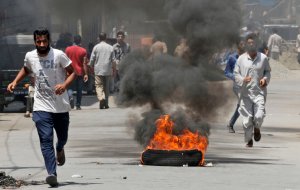
A group of social activists and advocates appealed to all sections of society to restore the rich cultural and secular ethos of Jammu region by maintaining calm and not getting led astray by rumours and propaganda.
Expressing grave concern over the Kishtwar incident and its spill out in various other parts of the region they said that the situation needs to be handled at both the administrative and political fronts to not only bring some semblance of normalcy but also to heal the minds and treat the hatred that is vitiating the atmosphere.
They said that Jammu region has always exhibited the best of secular traditions since the last several decades and that these need to be preserved at every cost.
The group included H.U. Siddiqui, M.R. Quereshi, A.H. Mughal, Mehmood Mirza, Iqbal Hussain Butt, A.A Hamal, Anwar Choudhry, Achal Sharma, Ashwini Sharma, Master Abdul Majid, Azam Shah, Farooq Muztar, Khurshid Bismal, Mohd. Ayub Shabnam, K.K. Kapoor, Maroof Manhas, Raja Abbas and Nazir Chowdhry.
The Internationalist Democratic Party (IDP) also made a strong appeal for maintaining peace and expressed grave concern at the spill over of the Kishtwar incident to Jammu city and other areas.
It’s president I.D. Khajuria and general secretary J.A. Kazmi were extremely concerned about the incidents of targeting minorities in areas where they have a microscopic presence. They said that this seemed to be a part of bigger conspiracy which needs to be unveiled.
They added that the immediate need, however, is to maintain law and order and ensure the safety of all communities, especially in areas where they are in minority. They have also appealed to general public to remain calm and resist the temptation of getting swayed by rumours.
Meanwhile, the residents of Talab Khatikan, Mohalla Dalpatia, Residency Road, Link Road, Jain Bazar, Mohalla Mastgarh and Mohalla Khatkatian, while addressing a press conference, today expressed concern over the prevailing situation.
They said, “It is a known thing that all the communities Hindu, Muslim, Sikh are living in the state in exemplary harmony, particularly in the district of Kishtwar, Doda, Reasi, Jammu, Rajouri, Poonch, Kathua and Udhampur. The incident which took place on August 9 in Kishtwar is highly condemnable and cannot be justified at all.”
They further appealed to all the like minded people irrespective of caste and creed as well as political parties to come forward in normalising the situation and bring peace in the troubled area as soon as possible. They also demanded that the culprits should not be spared and must be brought to book and dealt with an iron hand irrespective of caste, community and religion the belong.
The civil society group alleged that some political parties tried to communalise the situation as the election of 2014 was nearing. “The activities of such elements are required to be curbed with an iron hand, so that harmony could be maintained irrespective of which community they belong to,” they added.
Those who addressed the press briefing included Hafeez-ur-Rehman (Advocate), Bashir Ahmad Malik, Sanjeev Gupta, Devinder Singh, Ayub Beg, Ashiq Hussain, Raji Shaluja, Dr. Shahid Mugdal, Ajay Gandotra alias Manta, Devinder Gupta, Vinod Kumar, Sudesh Dogra, Mrs. Kapoor, Rinku, Happy Gupta, Parveen Singh, Davinder Joshi, Rashid Ahmad, Safdar Khan Manhas and Zeeshan Ali.
Meanwhile, Duggar Vikas Manch (DVM), a forum which represents all segments of Duggar Society, today appealed to the people of Jammu region to maintain peace, which is an example of brotherhood and communal harmony as there is a dire need at this crucial moment of maintaining this centuries-old tradition of the state, and requested the people to defeat the designs of divisive forces.
DVM President Dineshwar Singh Jamwal demanded that the sufferers must be compensated as per their damages and asked the officials to remain vigilant and caution the people of both the communities against rumour-mongers.
He further appealed to the people to maintain peace and communal harmony to help restore law and order, which Jammu region’s society symbolizes with its pluralistic ethos and peaceful co-existence of different faiths, cultures and ethnic groups.
DVM also urged the civil society of Jammu region to come forward to defuse the tensions in this region as the government has failed to deliver in time though Hindus, Muslims and Sikhs have lived together in harmony even during worse situations in the region.
Source: KT NEWS SERVICE
Civil society groups slam MP govt over FRA violations in Mahan forests
Civil society groups on Tuesday came together in support of Mahan Sangharsh Samiti (MSS) and demanded a response from Madhya Pradesh Chief Minister Shivraj Singh Chouhan about the non-implementation of Forest Rights Act (FRA) in the Mahan forests of Singrauli district.
“This has come two months after the Union Tribal Affairs Minister, V K C Deo wrote a letter to the State Chief Minister and Governor, about FRA violations in the Mahan forests in the Singrauli district,” Greenpeace India Senior Campaigner and MSS activist Priya Pillai told reporters.
The state government has been tight-lipped about the issue and has not come out with any response, Priya said. “The Union Tribal Affairs Ministry has still not got a response from the Chief Minister. The State government cannot afford to drag its feet over the issue,” said Priya who is an activist with MSS and has been working with villagers in Mahan for the past two-and-a-half years for implementation of the FRA. She said the MoEF granted Stage-I clearance to the Mahan coal block (alloted to Mahan Coal Limited – a joint venture of Essar and Hindalco) last year, along with 36 conditions which includes implementation of FRA.
However, the state government has gone ahead and given an NOC to the company on the basis of a fraudulent Gram Sabha resolution, Pillai said. A special Gram Sabha on FRA was held on March 6, 2013 in Amelia, which was attended by only 184 people, she said. But the copy of the Gram Sabha resolution obtained through RTI (after four months) has 1,125 signatures – most of them, the villagers fear, have been forged, Priya said.
At a joint press conference with MSS members on July 19, 2013, Deo had assured he will look into the matter. “We have come to Bhopal to demand our rights from the Chief Minister. The Tribal Affairs Minister had assured us of his support but the State government has not spoken a word on the issue,” said Ujiraj Singh Khairwar, member of MSS and a resident of Amelia. The mine would render them homeless, Khairwar said and added that for generations they have been dependent on the forests for their livelihood.
Source: PTI 13 August 2013


